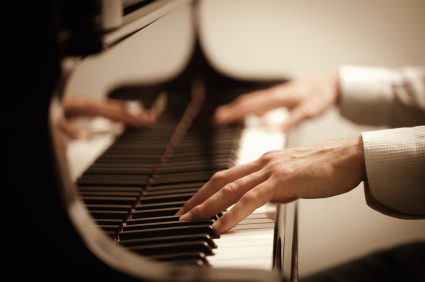There is a difference between playing a few quick pieces on the piano, and mastering it. Mastering the piano means understanding all the various aspects of taking up the instrument; tone, musicality, reading music, understanding rhythm, and much more.
 While a child is in the learning cue – they understand the process of learning new things as they do it every day – those same tasks can come much slower once we hit adulthood.
While a child is in the learning cue – they understand the process of learning new things as they do it every day – those same tasks can come much slower once we hit adulthood.
That doesn’t mean you can’t do it; it simply means you have to dedicate yourself to the art form of mastering the piano.
1. Study whichever genre you want.
As an adult, you have an idea of what you want to play and what type of music you enjoy. Therefore, you should ensure you learn whichever genre you want first. Some people believe they need to learn classical music before learning jazz and pop – which is incorrect. In fact, learning popular music is the ideal technique when being taught the art of mastering the piano. Many people do not need to even read sheet music when learning popular music since the chords are straightforward. Classical music is less straightforward and takes more time to learn. Advancing from popular music to classical music works best when studying music theory. Plus it gives you a reason to continue – you enjoy what you’re doing.
2. Children have less mental distractions – not more receptive abilities.
In many cases it is easier for children to learn material, but this does not mean they learn any quicker. Children have less mental-clutter, which makes studying easier for them – making the ability to learn material quicker than adults can learn. However, adults are often more in the mindset to take on a new project. They are after all the ones who are pursuing the piano, unlike a child that may have been signed up by a parent because it’s good for him. Do not think that as an adult, you learn much slower – you just have more things on your plate, which interferes with overall learning capabilities. Make piano a priority, and you’ll learn as quickly as others.
3. Play for as long as you want when practicing.
With anything in life, you cannot force yourself to practice for something you have no ambition to learn. If you do a 10-minute session at the piano and get fatigued or bored, get up and do something else. Micro-sessions of 10 minute plays several times out of the day are better than sitting down for long periods of time in which you are bored and distracted. You should play as long as you feel content to play. Do not force yourself to play for long sessions unless motivated because it can hinder your overall practice sessions.
4. Look at your hands as you play.
When learning the piano, it is okay to look at your hands. Teachers scold their students for looking at their hands and force them to look at the sheet music. This is not helpful at all unless you have excelled with sight-reading, which is looking at the sheet music to see what is coming ahead. However, it is natural to look at your hands when playing, so do not feel like you should not look at your hands. Play the piano however you feel most comfortable.


Speak Your Mind